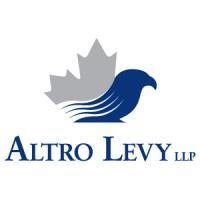Parents want what’s best for their children and will go to great lengths to see them succeed and help plan for their futures. Many parents have turned to trusts to provide their children with more sophisticated tax and estate planning to help them financially down the road. Generally, parents look forward to the day when they can see their children married, settled in a career, and raising a family of their own. However, there are no guarantees that their lives will remain here in Canada. Everyday Canadians move to the US, whether it be for work, studies or maybe to follow their potential spouse. Whatever the reason, these Canadians could become US residents or US citizens, an issue which must be addressed if they are beneficiaries of a Canadian trust. For clarity, the issues would apply to any trust that is foreign to the US, however we will be using a Canadian trust as an example throughout our discussion.
Whether the beneficiary of a Canadian trust was a US citizen or US resident at the time of its creation, or only subsequently become one after the fact is irrelevant. Whether your child is a Canadian citizen/US resident or a US citizen/Canadian resident, the issues remain the same, as in both scenarios the child would be considered a US tax payer.
The Internal Revenue Service (IRS) will impose certain additional requirements on US tax payers where they are treated as the owner of the assets of a Canadian trust. It will be the US beneficiary’s responsibility to make sure the trust discloses its assets and any generated income to the IRS by having the trust file its annual tax return. They will also personally be required to file IRS form 3520, which in addition to disclosing the existence of the trust, must also name others who may be deemed owners of the trust property. Additionally, they will need to declare any distributions that were made to them by such Canadian trust. Omitting to file their returns could find the US beneficiary facing significant penalties by the IRS. On a side note, they could also have an obligation to file an FBAR return on behalf of the trust, however this is another topic for another day.
Although the focus thus far has been on US persons as beneficiaries of a Canadian trust there are also additional reporting requirements for any US person who creates a Canadian trust or transfers money/property to such trust.
Based on the grantor trust rules of the Internal Revenue Code sections 671-679, there are implications from an income tax standpoint where a US citizen or US resident transfers their US assets to a Canadian trust. From the US perspective, where they are deemed to have some retained interest in the property the US grantor will continue to be taxed on the income of this trust. Should the income be distributed to Canadian beneficiaries, they too will need to include this income in their Canadian tax returns.
There are also considerations when the Canadian trust is a non-grantor trust. Here the grantor doesn’t retain any interest in the trust or its assets. Should a US person transfer assets to such a trust it would trigger a disposition in the US for such person. They will be deemed to have disposed of their property at fair market value and be required to declare any gains on their US tax return. Should the property have been transferred at a loss the US tax payer would lose out on deducting against any future gains.
It is due to the complex issues on both sides of the border that one should seek the guidance of professionals who understand the implications on both the Canadian and US sides. When dealing with cross-border issues, assuming that the rules are the same for everyone could lead to very grave and costly mistakes. These are mistakes that should not be made, especially when the reason for planning in the first place was to provide protection for your children beneficiaries down the road. Always be cautious when a US citizen or resident is in the mix for planning purposes. The goal is to find the right plan that works on both sides of the border.




 />i
/>i
